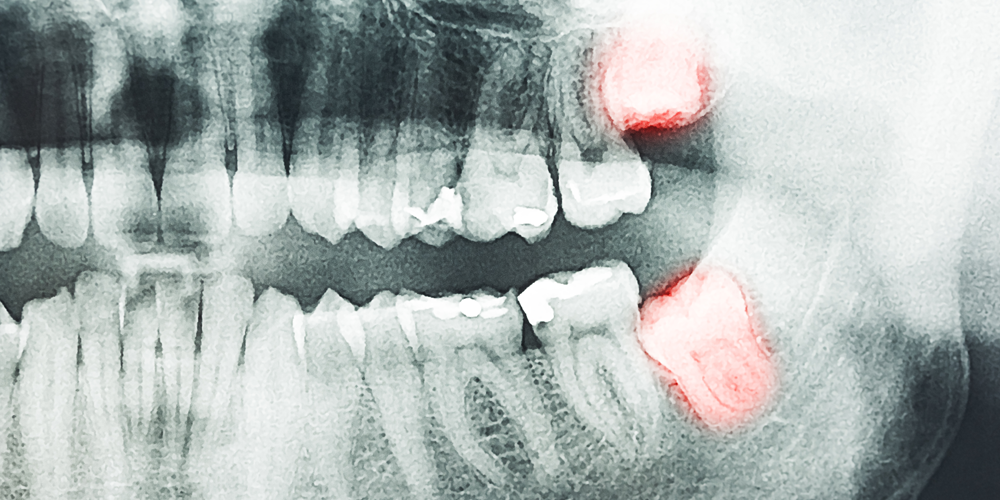Wisdom teeth extraction has become a rite of passage for Americans in their late teens. Our offices fill up during college breaks with young students looking to ease the soreness in their mouths as these new teeth attempt to break through. But does everyone go through this? And why? Well, here is the basic info on what you should know about Wisdom Teeth and extraction:
Not Everyone Needs their Wisdom Teeth Removed
Wisdom teeth only need removal if they are impacted, partially impacted, or will cause crowding if the other existing teeth. With this in mind, only 15% of people can actually go through their lives without issues, keeping their Wisdom teeth and without experiencing complications of infection, pain, or tooth crowding. That leaves the other 85% of us to treat this dental issue before it negatively impacts our lives.
Why Not Leave Wisdom Teeth In Anyway?
Leaving in Wisdom teeth causes unnecessary and potentially life-long pain and issues of infection. Most Wisdom teeth come up toward the surface but are not able to come through all the way, pushing on neighboring teeth and jaw bone from the inside of the gums. These neighboring teeth and jaw cannot handle the ongoing impact without issue, pain and infection. Alternatively, opening space for the tooth to come up causes the other teeth to crowd forward on the jaw line, overlapping and rubbing against one another, leading to cavities, stress fractures, and root issues.
Can I delay removing them and address it when they become an issue?
Yes, but I wouldn’t advise it. We can usually see the trajectory of your Wisdom teeth in x-rays, and use that information along with the size and current positions of your other teeth to predict the potential damage level that would occur. If we know the teeth will likely need to come out, it is smarter to do it at a time when no damage has yet occurred, including infection and irreversible damage to the jawbone and neighboring teeth. If you wait, the surgery will be similar, but with more risk factors such as inflammation and increased bleeding, which could have been avoided.
What is the Wisdom Teeth Surgery Like?
When polling most adults on their Wisdom teeth extraction, you will find most hardly remember it at all. This is because the removal process is short, and the recovery is only a few days. The Wisdom teeth removal surgery only takes around 45 minutes and can be performed under a variety of levels of sedation including local (awake, but numb), general (drugged, pain free,) or IV sedation (unconscious.) The surgery itself if pain-free and the days after include some soreness and swelling, but nothing compared to the risks and pain if the patient had left the teeth as they were.
The best course of action when it comes to Wisdom teeth is to have an open dialog with your dentist, keep your x-rays current, and make an educated decision as to if and when it is time for surgical intervention. We would like if everyone’s mouth was able to accommodate these third molars without paid, issue, or infection, but this is simply not the case and you don’t want to be surprised by unnecessary pain and issues in the future. Oral surgeons also recommend removing impacted wisdom teeth that don’t cause symptoms to prevent future problems sometime between the ages of 17 and 25 to avoid future complications such as:
- Damage to other teeth. If the wisdom tooth pushes against the second molar, it may damage the second molar or increase the risk of infection in that area. This pressure can also cause problems with crowding of the other teeth or require orthodontic treatment to straighten other teeth.
- Cysts. The wisdom tooth develops in a sac within the jawbone. The sac can fill with fluid, forming a cyst that can damage the jawbone, teeth and nerves. Rarely, a tumor — usually noncancerous (benign) — develops. This complication may require removal of tissue and bone.
- Decay. Partially impacted wisdom teeth appear to be at higher risk of tooth decay (caries) than other teeth. This probably occurs because wisdom teeth are harder to clean and because food and bacteria get easily trapped between the gum and a partially erupted tooth.
- Gum disease. The difficulty cleaning impacted, partially erupted wisdom teeth increases the risk of developing a painful, inflammatory gum condition called pericoronitis in that area.
If you’d like to make an appointment to talk to one of our extraction specialist and see what your best options are, call us today at 203-951-5540.

